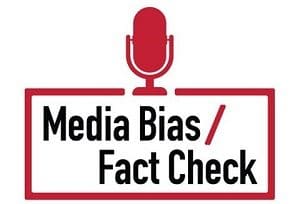LEFT BIAS
These media sources are moderately to strongly biased toward liberal causes through story selection and/or political affiliation. They may utilize strong loaded words (wording that attempts to influence an audience by using appeal to emotion or stereotypes), publish misleading reports, and omit information reporting that may damage liberal causes. Some sources in this category may be untrustworthy. See all Left Bias sources.
- Overall, The Harvard International Review (HIR) focuses on progressive perspectives and social justice issues; therefore, we rate them as Left biased due to story selection, and we rate them high for factual reporting due to extensive sourcing and a clean fact-check record.
Detailed Report
Bias Rating: LEFT
Factual Reporting: HIGH
Country: USA
MBFC’s Country Freedom Rating: MOSTLY FREE
Media Type: Magazine
Traffic/Popularity: Medium Traffic
MBFC Credibility Rating: HIGH CREDIBILITY
History
Harvard International Review (HIR) was established in 1979 by Harvard International Relations Council undergraduates. Initially a monthly publication, it shifted to a quarterly schedule and began featuring insights from notable figures in international relations. Its headquarters are in Cambridge, MA. The website is transparent as they list the board of directors.
Read our profile on the United States government and media.
Funded by / Ownership
The Harvard International Review (HIR) is a student-run publication of Harvard University. The Harvard International Relations Council publishes it and is primarily funded through its subscription services. They offer both print and digital subscriptions. There is no mention of additional funding sources.
Analysis / Bias
The Harvard International Review categorizes articles by geographical regions and topics such as Agriculture, Business, Cybersecurity, and Public Health, each providing an in-depth overview. For instance, the ‘Human Rights’ section includes articles like “The Limitations of Humanity: Differential Refugee Treatment in the EU,” which critiques refugee treatment, emphasizing social justice and equality; while these concepts are not exclusive to any one ideology, they are often associated with left-leaning views. It also uses strong language like “unwritten laws of basic human decency” to imply the EU’s unjust actions.
In the Defense section, the article “The Latest in a Long Line: Ukraine’s International Legion and a History of Foreign Fighters” delves into foreign fighters volunteering in Ukraine during its conflict with Russia. While it provides historical context, the author’s use of terms like “unwavering devotion,” “courage,” and “commendable trait” casts the foreign fighters aiding Ukraine in a positive light. Further, HIR often employs emotionally loaded language in its titles, such as “When Rights Slip Through the Cracks of Culture: Women’s Rights and Justice in Nigeria—Or Lack Thereof,” which can influence readers’ perceptions and pre-determine their stance on the issue even before they delve into the article’s content.
When it comes to sources, HIR uses a variety of outlets, including the NY Times, reliefweb.int, Deutsche Welle (DW) News, immigrationlab.org, news.stanford.edu, The Guardian, Al Jazeera, Vox, New America, France24, unhcr.org, Council on Foreign Relations, Washington Post, Voice of America, The Independent UK, gov UK, wearethemighty.com, and Human Rights Watch. Some of these sources are known for their highly factual reporting, while others have a mixed reputation. In general, HIR is fact-based and holds moderately left-leaning political perspectives.
Failed Fact Checks
- None in the Last 5 years
Overall, The Harvard International Review (HIR) focuses on progressive perspectives and social justice issues; therefore, we rate them as Left biased due to story selection, and we rate them high for factual reporting due to extensive sourcing and a clean fact-check record. (M. Huitsing 07/28/2023)
Source: https://hir.harvard.edu/
Last Updated on August 3, 2023 by Media Bias Fact Check
Do you appreciate our work? Please consider one of the following ways to sustain us.
or
Left vs. Right Bias: How we rate the bias of media sources


